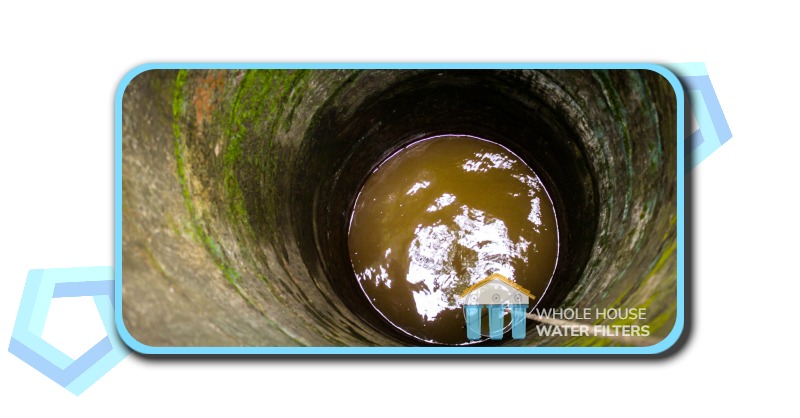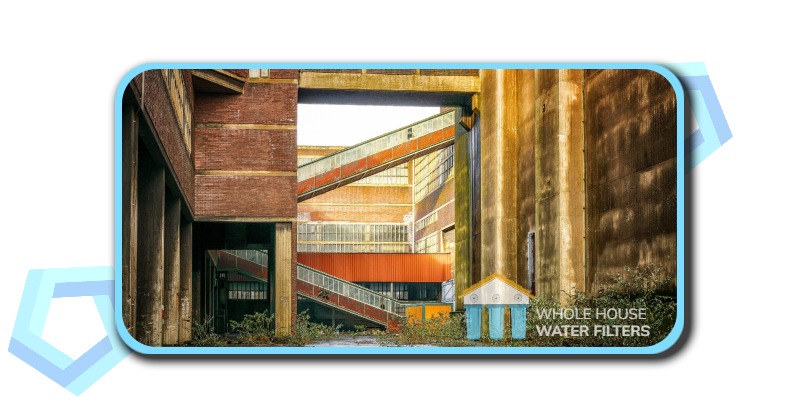Water Softeners, Whole House Water Filtration System
Whole House Water Filtration Systems: Who are they for?
Whole House Water Filtration Systems: Who are they for?
Whole House Water Filters are beneficial for providing cleaner, safer water throughout a home, but WHO are they really for?
1. For Rural Communities with Well Water:
-
- The Issue: Those living in rural areas often source their water from wells, which are susceptible to various contaminants, including bacteria, nitrates, and heavy metals.
- How Whole House Filters Help: A comprehensive filtration system removes these contaminants, ensuring that the well water is not only drinkable but also safe for cooking, bathing, and other household uses.
2. For Urban Areas with Aging Infrastructure:
-
- The Issue: Many cities with older plumbing systems face the risk of contaminants like lead leaching into the water supply.
- How Whole House Filters Help: By installing a whole house water filter, residents can ensure that they’re protected from potential toxins, even as city officials work on long-term infrastructure upgrades.
3. For Industrial Towns:
-
- The Issue: Towns with a high concentration of industries might experience water pollution due to runoff from factories. This can include chemicals, heavy metals, and other hazardous substances.
- How Whole House Filters Help: A whole house filter acts as the last line of defence, ensuring that harmful industrial by-products don’t make their way into residents’ homes.
Note: Regions where the municipal water supply is compromised by contaminants, such as heavy metals, chlorine, pesticides, or microbial threats, would greatly benefit from the AquaCo Premium Whole House Water Filter. Ensuring clean water throughout the home can protect the health of the residents.
4. For Farming Communities:
-
- The Issue: Pesticides, herbicides, and fertilizers used in farming can seep into the groundwater, affecting the water quality of nearby communities.
- How Whole House Filters Help: Such systems effectively filter out these agricultural chemicals, ensuring that families in farming areas have access to uncontaminated water.
Note: Residences near farming zones can sometimes be affected by runoff that contains pesticides, herbicides, fertilizers and chemical spills. The Triple AquaCo Whole House Water Filtration System can help remove these contaminants, ensuring safer water for consumption and use.
5. For areas with Iron Rich Soils and Other Naturally Occurring Contaminants:
-
- The Issue: Certain regions have natural deposits of harmful substances, like iron, arsenic or fluoride, which can leach into the groundwater.
- How Whole House Filters Help: A filtration system can remove these naturally occurring toxins, ensuring that the water remains pure and safe for consumption.
Note: The AquaCo Premium Whole House Water Filtration system is capable of removing iron at concentration level lower than 0.3 mg/l.
6. For Everyone:
-
- The Issue: Everyone living in urban areas where chlorine is often added to municipal water supplies as a disinfectant.
- How Whole House Filters Help: A filtration system can improve the taste and smell caused by chlorine, and protect the skin and hair from the drying effects of chlorine. Also, inhaling the steam from a hot shower can mean inhaling some chlorine vapours. Therefore, if you have respiratory issues or sensitivities, a whole house water filtration system can protect your nose, throat and lungs from irritation.
Note: The AquaCo Premium Whole House Water Filter can enhance the experience in luxury bathrooms or home spas. By filtering out impurities, the water can feel softer and less irritating to the skin, leading to a more comfortable and luxurious bathing or spa experience.
The safety and purity of the water in our homes are paramount. While different communities face unique challenges regarding water quality, whole house water filters offer a versatile solution suitable for various scenarios. Whether you’re in a bustling city with dated pipes or a rural area with well water, considering a filtration system might be a valuable step toward a healthier, safer living environment.
Stay Informed: Check Your Local Water Quality Reports!
- Perth Water Quality
- Sydney Water Quality
- Melbourne Water Quality
- Adelaide Water Quality
- Brisbane Water Quality
Keep in mind tap water is only tested at the reservoir and doesn’t take into account all the contamination that occurs during its travel to your home.
Helpful Links:
- Water Quality Association (WQA): The WQA is a renowned organization that provides certifications for water treatment products, including water softeners. You can visit their website to learn about their certification programs and find a list of certified water softeners. Website: https://www.wqa.org/
- National Sanitation Foundation (NSF International): NSF International is another prominent organization that offers certifications for water treatment products, ensuring they meet specific standards. You can search for certified water softeners on their website. Website: https://www.nsf.org/
- American National Standards Institute (ANSI): ANSI accredits organizations that develop product standards, including those related to water treatment. You can check their website to find accredited certification programs for water softeners. Website: https://www.ansi.org/
